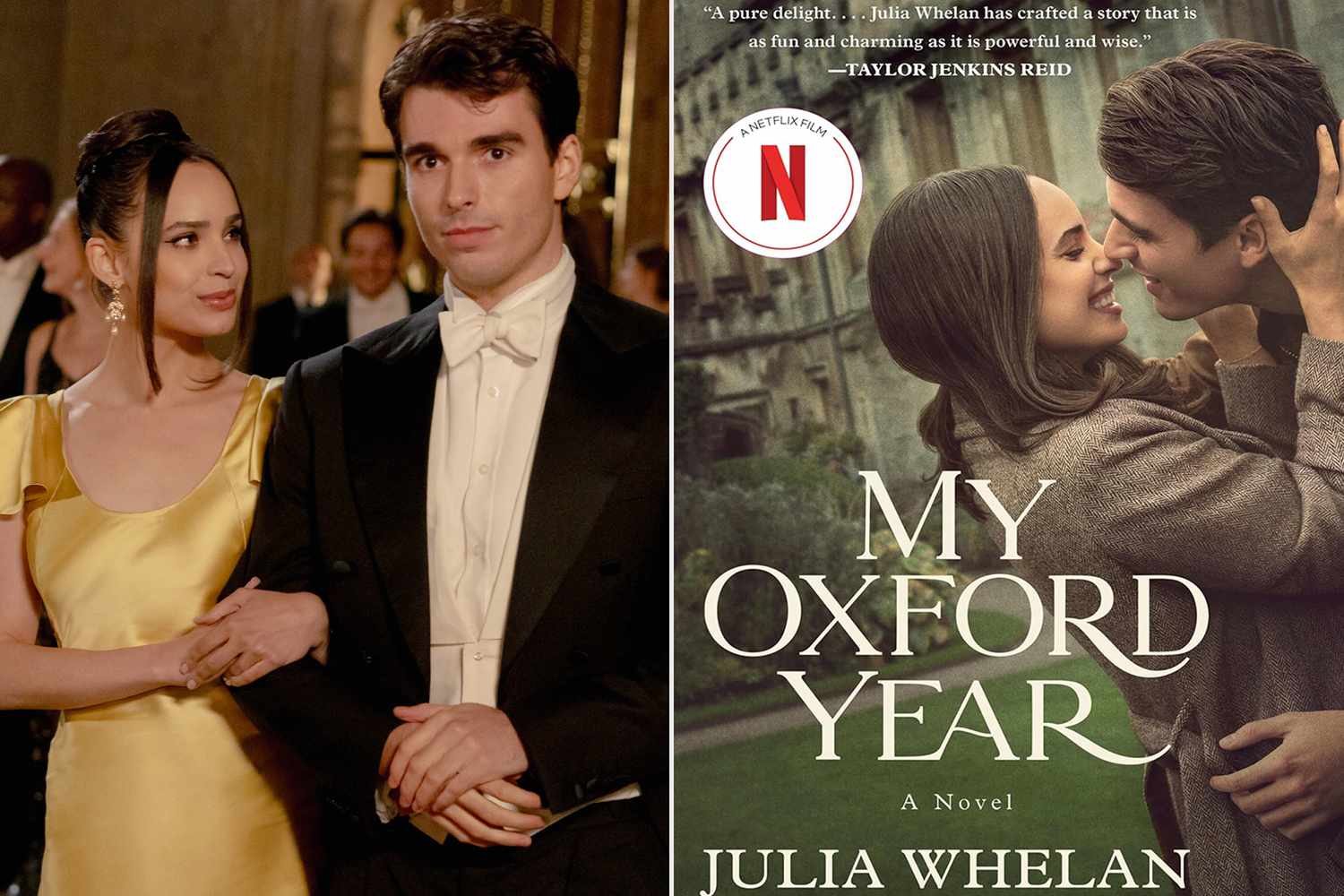Netflix’s newest romance, My Oxford Year (released 1 August 2025), was marketed on the platform as “sincere, bittersweet, heartfelt.” Instead, it has quickly become a viral punchline. Critics dismissed it as formulaic, audiences abandoned it halfway through, and TikTok feeds flooded with memes mocking its dialogue and acting. How did a story with so much promise fall apart this badly?
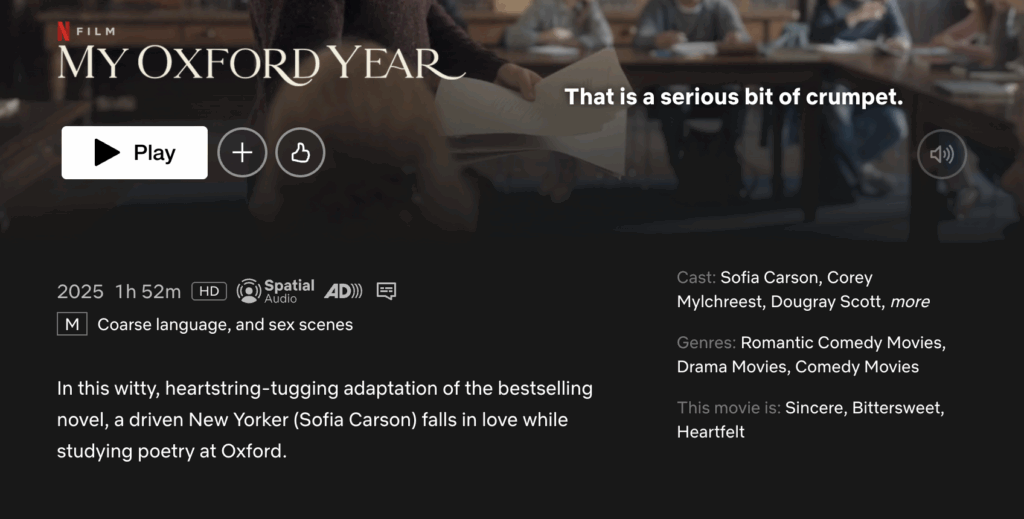
Adapted from Julia Whelan’s 2018 novel, My Oxford Year follows Anna (Sofia Carson), an ambitious American fulfilling her childhood dream of studying Victorian poetry for one year at Oxford. Once there, she quickly falls for Jamie (Corey Mylchreest), her witty teaching assistant hiding a tragic secret.
On paper, Netflix’s adaptation should have delivered a tearjerker in the same iconic “weepie” style of Me Before You. Instead, critics compared this film to “a Wattpad novel written by a 15-year-old one direction fan” (Collider review).
“My Oxford Year is the most painfully 2010s movie since, well, the 2010s… with the plot and character development out of a Wattpad novel written by a 15-year-old One Direction fan.”
The adaptation stripped away what limited nuance the book contained; where Whelan explored ambition and sacrifice, the film leans on melodramatic stares, cringey one-liners and clunky dialogue that one Redditor described as having “the nuance of a sledgehammer.”
The result? Hundreds of 1 star reviews across sites, potentially cementing My Oxford Year as Netflix’s worst film and easily taking the cake for this years biggest “rom/com” flop.

Much of the films backlash has centred on Carson. Beautifully striking on screen, yes, but many viewers found her performance stiff, overly posed, emotionally flat. On TikTok, her portrayal of Anna was described simply as “cringe.” With one popular post mocking a cake-eating scene gained over 11.4 million views (TikTok).
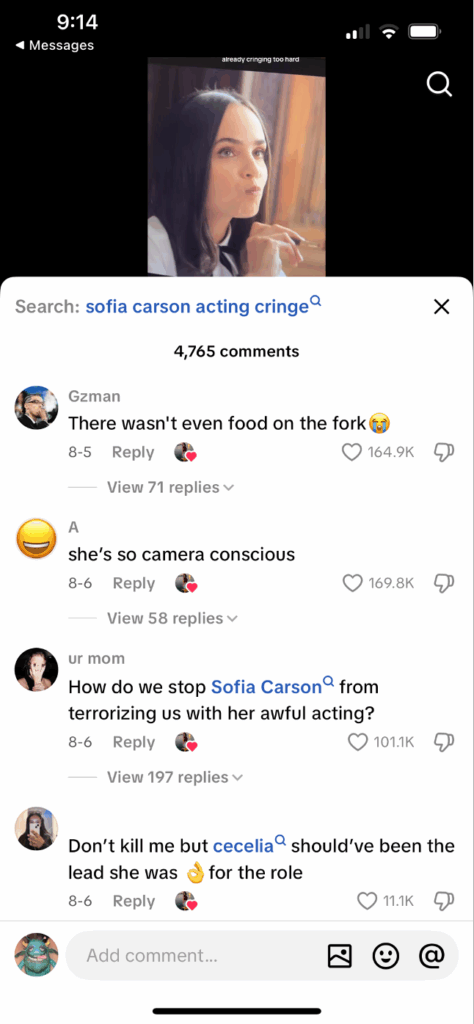
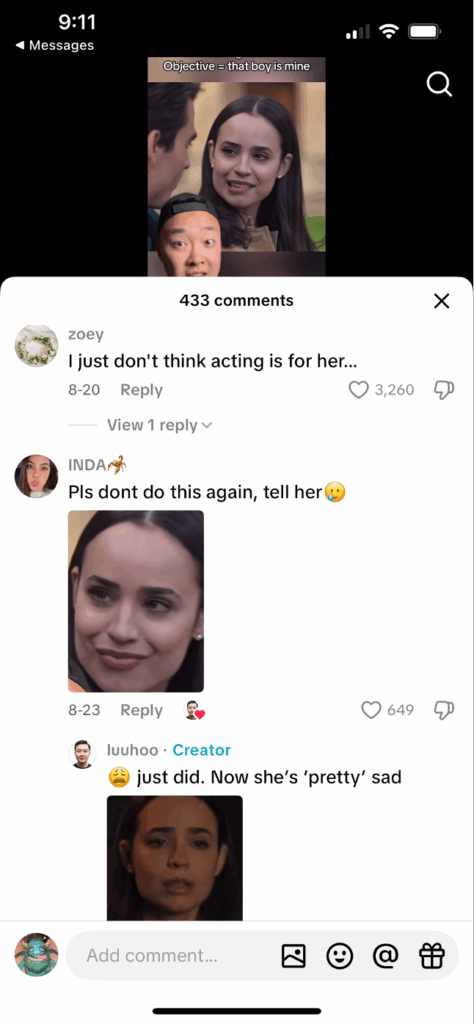
Reddit users echoed this criticism, noting Carson’s limited range made it difficult to invest in Anna’s journey. Some went further, speculating that her expressionless or “frozen” delivery was hampered by cosmetic rigidity.
“Sofia Carson walks like she’s headlining the Victoria’s Secret runway at a PTA meeting, then randomly throws in a dramatic pout like someone just told her the camera’s emotionally unstable. Girl delivers every line like it’s a Vogue cover shoot and natural acting called in sick. 💅🎬”
“All the Botox and lip fillers is stopping her from showing expressions in films. It looked like the lead actor was trying to get blood out of a stone. It was painful to watch.”
But the online controversy extended beyond acting. Carson also served as an executive producer, alongside her mother, Laura Char Carson fuelling accusations of nepotism. As Variety noted, when the lead actor also shapes production, accountability blurs. With such creative influence, Carson inevitably bore the brunt of the film’s shortcomings.
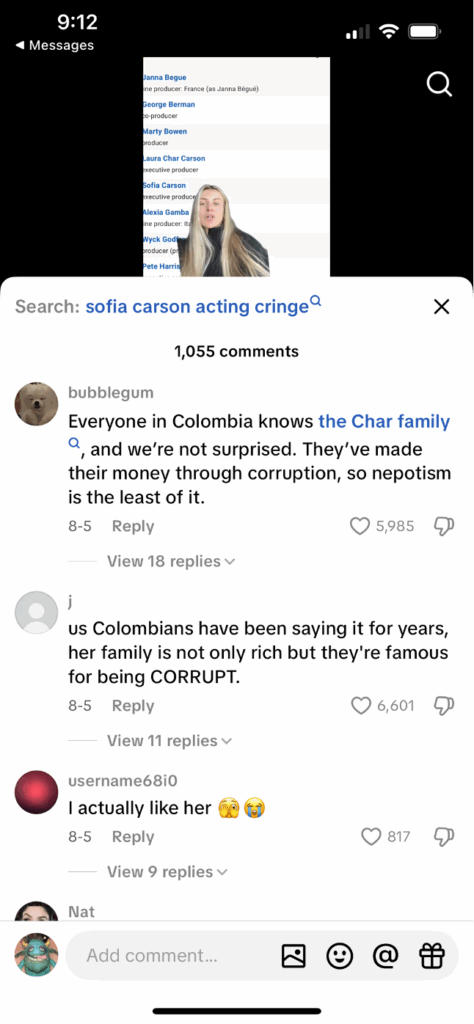
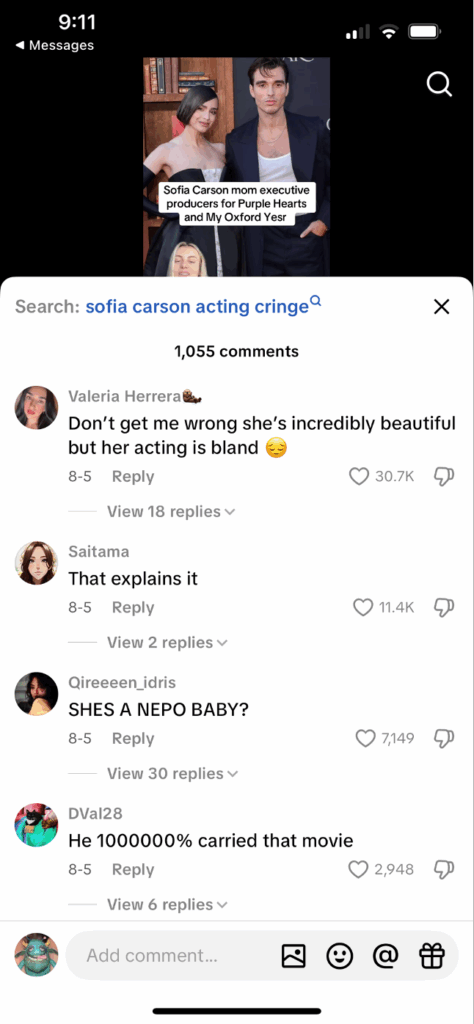
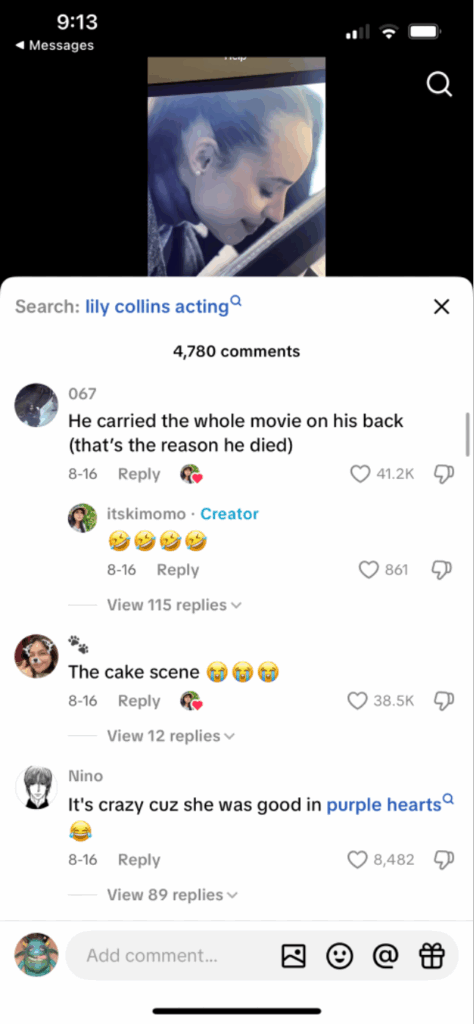
If Carson faltered, Corey Mylchreest, as “Jamie” was widely seen as the film’s saving grace. TikTokers celebrated his performance with gallows humour: “He carried this movie on his back (that’s the reason he died)” (41.2k likes on that comment alone. YouTube critic Joseph Fisher bluntly agreed: “He’s the only reason this movie is watchable.”
Jamie’s tragic death intended as the emotional climax, instead became meme fodder, its impact blunted by underdeveloped characters and awkward dialogue. What should have been a gut-wrenching finale was met with shrugs and laughter.
Beyond performances, the film itself struggles with believability. The central student–professor romance raises ethical questions Netflix largely ignores, framing it as swoon-worthy, rather than problematic?
Oxford itself, one of the world’s most prestigious academic institutions, is reduced to a postcard backdrop of cobblestones, bicycles, and coffee dates. As one Reddit user quipped: “When does she study? Where are her essays? Or her phone?” Without academic authenticity, the story’s gravitas collapses.
Rather than heartbreak, My Oxford Year inspired laughter and ridicule. TikTok edits mocked its dialogue and actors performances, YouTubers tore apart its pacing and believability and ScreenRant critic dismissed it as relying “on melodramatic emotional appeals instead of genuine conflict or a propulsive narrative.” The film’s failure reflects a broader issue within Netflix’s production strategy. As The Guardian has argued in its coverage of recent Netflix adaptations, the platform has increasingly pursued glossy aesthetics and shallow algorithm-friendly tropes at the expense of substance. Photogenic leads, prestigious backdrops, and a tragic twist may generate marketing buzz, but when the storytelling fails, the result is a film that feels regressive and hollow.

To be fair, My Oxford Year isn’t entirely unwatchable. Mylchreest delivers moments of sincerity, Oxfords architecture is beautifully shot, and the cinematography hints at what could have been a more compelling adaptation. But overall, it epitomises Netflix’s growing problem: adapting beloved books without the care or nuance to make them resonate. Marketed as a “heartfelt”, “bittersweet”, “sincere”, “tearjerker” it ended up as meme fuel.
More than a bad movie, My Oxford Year is a cautionary tale: when streaming giants chase quantity over quality, even beloved source material can collapse into a cultural punchline.
